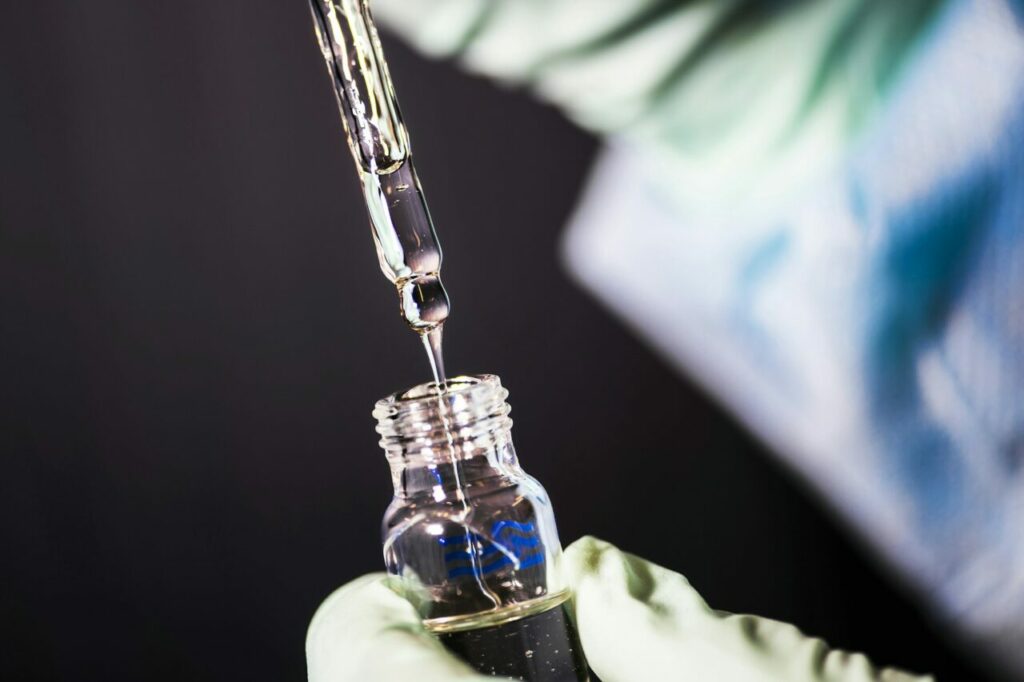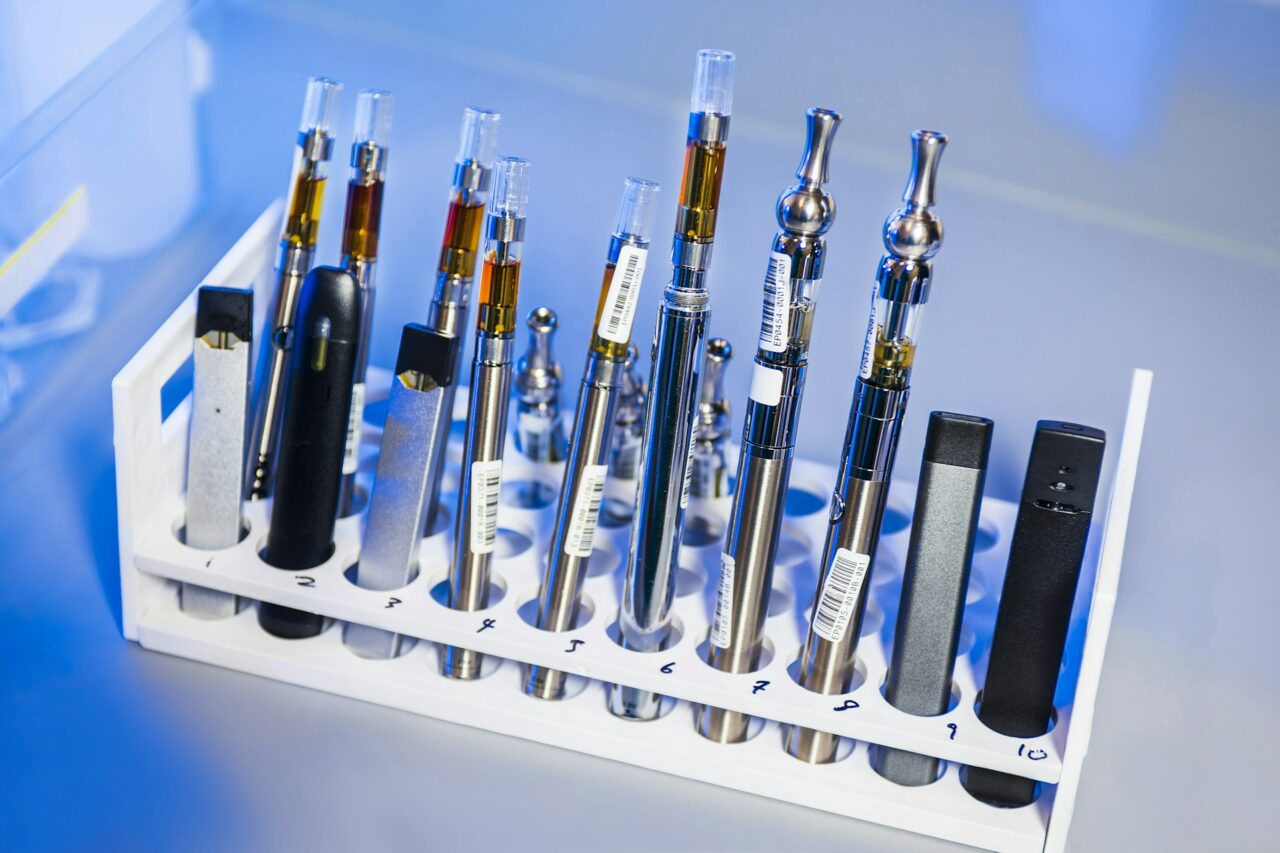The Drug Enforcement Administration (DEA) is increasing production quotas for pioneering products like the DMT vape pen, marijuana, and other psychedelics. With Canada leading the way, a captivating new age of understanding is approaching.
The recent announcement of increased production for particular substances lays the foundation for unprecedented research opportunities.
Key Takeaways:
- The DEA intends to raise production caps to 20,000 grams of psilocybin and 11,000 grams of dimethyltryptamine by 2024.
- The spirit molecule disrupts recurring thoughts and enhances brain and cognitive performance.
- Suggesting an increase in these substances could advance medical science and propose cost-efficient alternative therapies.
DEA’s 2024 Plan: A Passage to the Future of Psychedelics
In a significant move towards expanding research capabilities, the DEA’s recent proposal advocates for a boost in the production of specific controlled substances for scientific exploration in 2024. This reflects the growing recognition of the need for larger amounts to meet medical and research needs.
Proposal Details
The revised proposal considerably increases production quotas, showing a rising commitment to clinical trials. For instance, the target for certain substances has nearly doubled, with the production limit set at 20,000 grams for psilocybin and 11,000 grams for DMT vape cartridges.
These changes are a direct response to feedback from registered manufacturers, who emphasized the necessity for larger amounts to support present and future research. The production goals for related compounds have been maintained at previously high levels to ensure a steady supply for therapeutic studies.
Potential Benefits for Scientific Research and Therapeutic Uses
The increased availability of these substances could pave the way for new scientific ventures, particularly in uncovering their therapeutic potential. As more research becomes accessible, scientists might uncover revolutionary treatments for various conditions, including mental health disorders.
This intensified focus not only has the potential to enhance our knowledge but also aligns with the growing public interest in alternative treatments. These changes could propel medical science further and offer more affordable therapeutic alternatives than traditional treatments.
Navigating Uncharted Waters: Present and Future Research on Dimethylamine and Psychedelics in Canada
Canada has witnessed a growing interest in exploring unconventional therapy options, with recent progress suggesting a potential transformation in mental health treatment.
In 2021, there was a heightened curiosity in substances recognized for their psychological benefits, despite a subsequent deceleration in market trends. Nonetheless, ongoing clinical trials continue to produce positive outcomes.

Current Scenario
On December 5, 2022, Health Canada released a Notice to Stakeholders outlining the required risk-management measures for clinical trials involving psychedelic-assisted psychotherapy. In Canada, different provinces implement distinct strategies for regulating the study and use of psychedelics:
| Ontario | The Centre for Addiction and Mental Health (“CAMH”) received the first Canadian federal grant to study psilocybin. |
| Alberta | Approval granted for the therapeutic use of specific psychedelics, including psilocybin, psilocin, ketamine, LSD, MMDA and DMT. |
| University of Guelph | Obtained Health Canada’s approval to grow psilocybin-containing mushrooms |
| Saskatchewan | The Linden Medical Centre offers support for PTSD patients to access psychedelics |
| New Brunswick | Hosts a series of private clinics that provide PTSD treatment with ketamine |
| British Columbia | Has decriminalized personal possession of certain substances |
| Quebec | Numinus’s Mindspace legally administers psilocybin and MDMA for treating treatment-resistant depression and PTSD. |
Potential Research Directions
Various promising research areas are emerging, particularly in the therapeutic applications of dimethyltryptamine and psilocybin. As the body of evidence supporting their efficacy continues to expand, future research could investigate:
From her personal encounters, she reports each usage of the DMT vape pen cartridges brings a distinct and unique experience. She describes, “From the first puff, my body sinks into a state of deep relaxation and colours appear significantly vibrant,” she narrates.” I feel a sense of weightlessness, as if floating in water, yet firmly held by an invisible force.“
Entrepreneur Tim Leonard shares a deeply intense experience: “My spirit seemed to leave my body and venture into a realm that can only be described as divine.” He visualized “a semi-transparent human skull with a pulsating brain emitting colours and energy,” conveying a profound message about the marvel of human existence.
The Rise of Vapour Pens: A Guide for Conscious Consumers
The growing popularity of premium DMT vape pens and cartridges has transformed the way people engage with this substance. These sleek devices offer a discreet and convenient method for reaping its benefits. As the user base expands, so does the significance of responsible usage and staying informed about ongoing research.
- Educate Yourself: Stay updated with reliable sources about research and regulations. Keep abreast with clinical trials and their outcomes, as they can provide useful information about safety and efficacy.
- Know Your Product: Purchase from reputable sellers that offer transparent labelling and quality assurance. Understanding what’s in your product can contribute to a safer experience.
- Practice Moderation: Start with lower doses to assess your response. Conscious consumption can lead to more enjoyable experiences.
- Connect with the Community: Engage in discussions with fellow users and healthcare experts. Sharing experiences and insights fosters a supportive environment and encourages responsible usage.
Looking Ahead: How Canada’s Online Dispensary is Preparing for Psychedelic Trends – Where to Purchase Vape Pens
As research broadens our Shroom Store Canada offers informed choices for every journey in understanding these substances. As your dependable online dispensary, we make the vast and fascinating world of top-quality psilocybin products more accessible than ever.
The recent attention from the DEA has ignited interest in psychedelic research, forecasting a profusion of thrilling opportunities ahead.
Frequently Asked Questions
Can individuals acquire the substances the DEA has requested?
No. These substances are currently under research scrutiny for their potential advantages. To acquire a DMT vape cart or any of the specified substances, one must either visit a clinic offering them as part of a treatment plan or procure them from an online dispensary.
How does dimethyltryptamine differ from other psychedelic substances?
Dimethyltryptamine stands out from other psychedelics due to its powerful effect and short onset duration. Contrary to LSD, which can alter neural activity for several hours, dimethyltryptamine induces a brief, yet deeply immersive alteration in consciousness, marked by vivid visual patterns and a range of other sensations.
What conditions are currently showing improvements with dimethyltryptamine usage?
Numerous studies suggest that this compound can induce immediate antidepressant effects in patients the day following treatment. Additional research investigated its impact on mental health outcomes among healthy volunteers. The main focus is on reducing symptoms of depression and anxiety.





